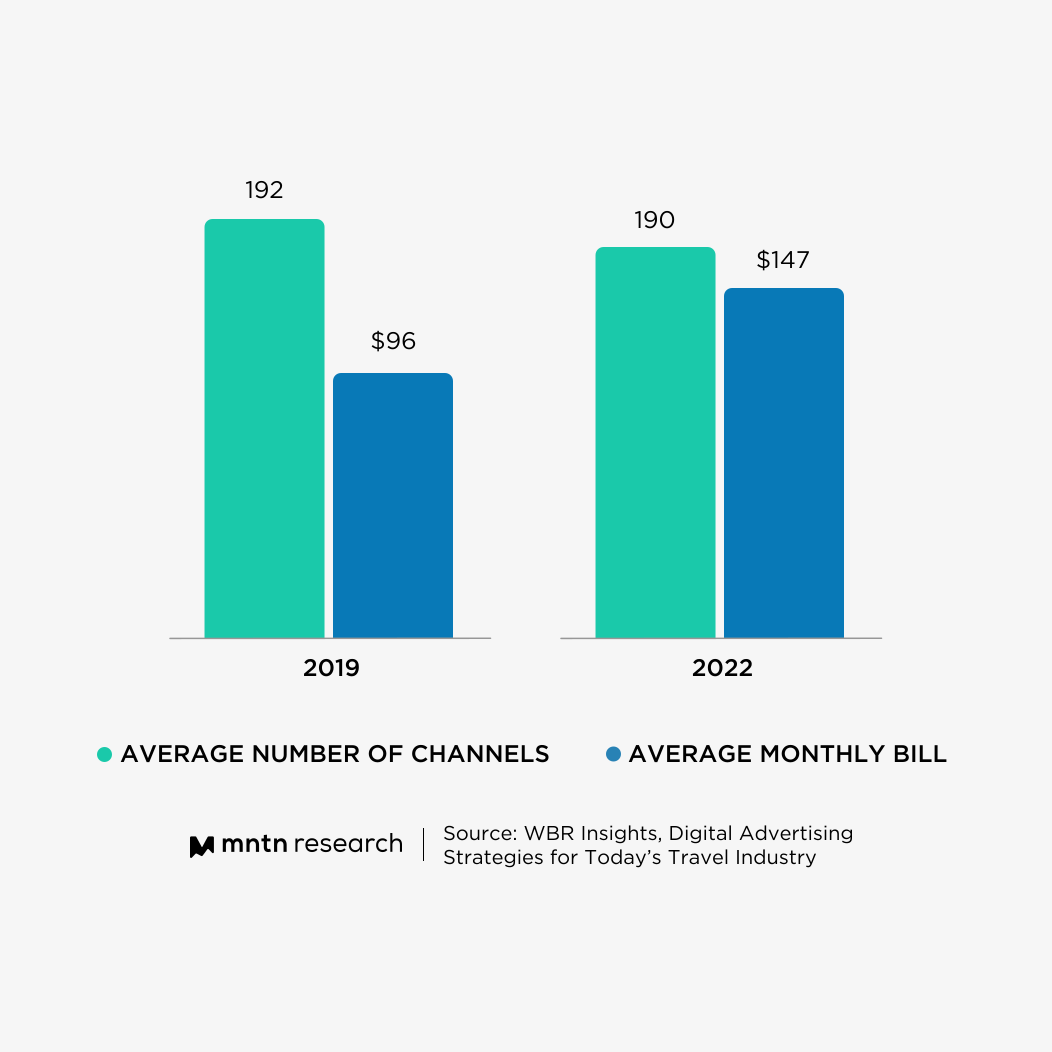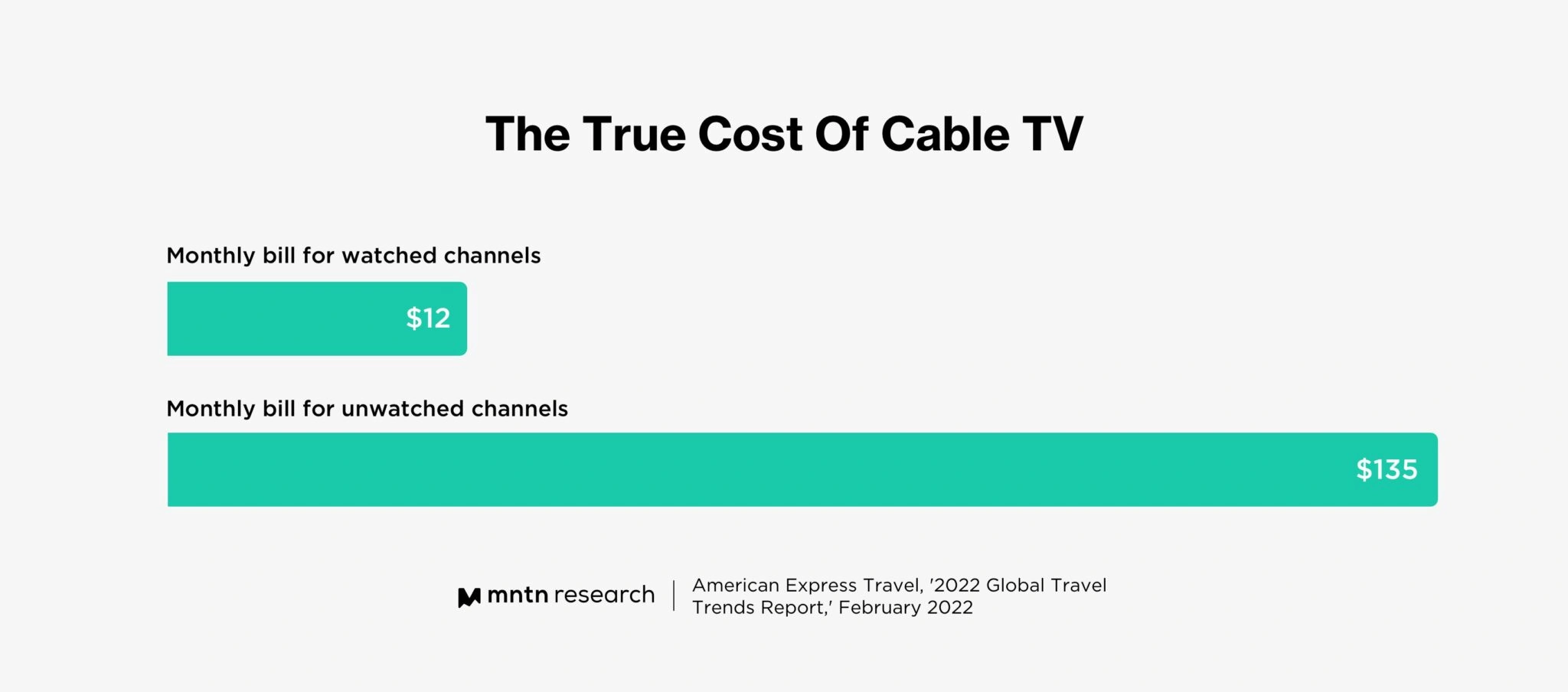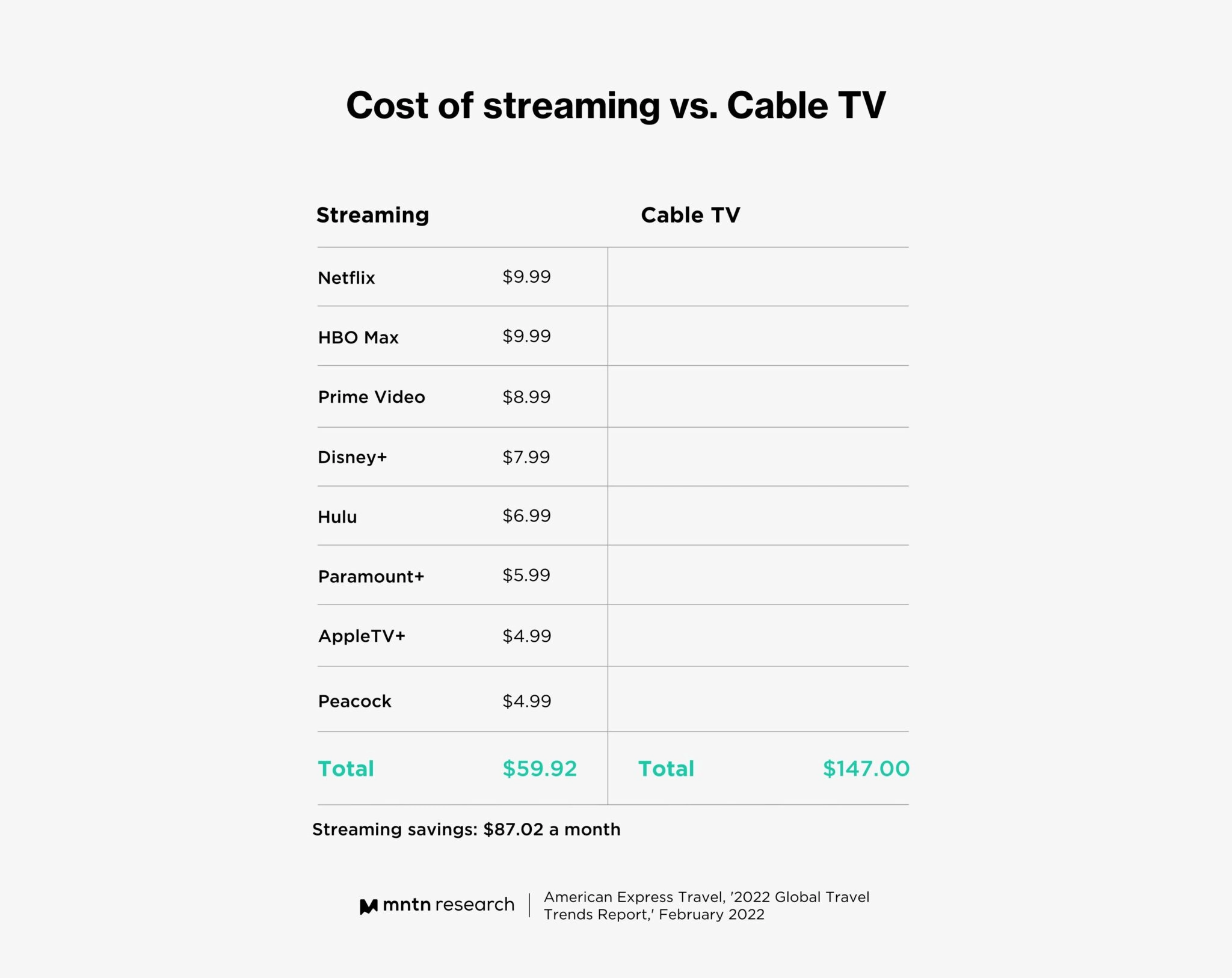Bruce
Bender and Chloe, the real Members of the Year
Original poster
Supporting Founder
Lifetime Supporter
- Nov 29, 2003
- 16,065
- 20,681

Cable TV Subscribers Pay $1,618 a Year for Channels (and Ads) They Don’t Watch
The average U.S. consumer pays $1,600 annually for 190 channels—but only watches 15. Here's what that's bad news for advertisers.
Highlights-
- The average U.S. consumer pays $1,600 annually for cable TV channels they don’t watch, if you make $50,000 a year, that is 3% of your gross income
- These audiences typically have access to 190 channels but only watch 15, I watch maybe 10 at most, most very part time, example, only watch Big Ten Channel during Football Season.
- Meanwhile, the cable bill has grown 52% in the last three years—speeding up cord-cutting, now expected to lose 7-8 million subscribers this year.
- 4 out of 5 linear TV customers wish they could pay for just the channels they watch, similar to the streaming model, hence why I am giving up YTTV at the end of the year, tired of paying for stuff I never watch.

then this-

I hate charts like this because the numbers are always wrong and they include streaming services that are not a replacement for Cable/Sat TV, but are a extra
This is what I consider the closest to a Cable replacement, all commercial free
Peacock-$10 (NBC/Universal Cable Channels)
Hulu with Disney/ESPN+ $20 (ABC/FOX and all their cable Channels)
Paramount+ with Showtime $10 , I pay yearly, so average is that amount ( CBS and Viacom Channels )
HBO/MAX $20 ( which includes Discovery, Warner Cable Channels Content)
AMC+ $8
So if you want to replace Cable TV and also get the exclusive content, that is only $68 a month, a savings of $79 based on that chart.
If you want to go cheaper, get the commercial versions, or do not get all of the above, AMC and MAX I will not be getting this year, so a savings of $28 more dollars a month.
Then if you want to add Netflix, Prime and Apple, which would be a extra if you are a cord cutter or Cable/Sat TV subscriber, that is $38 a month more

